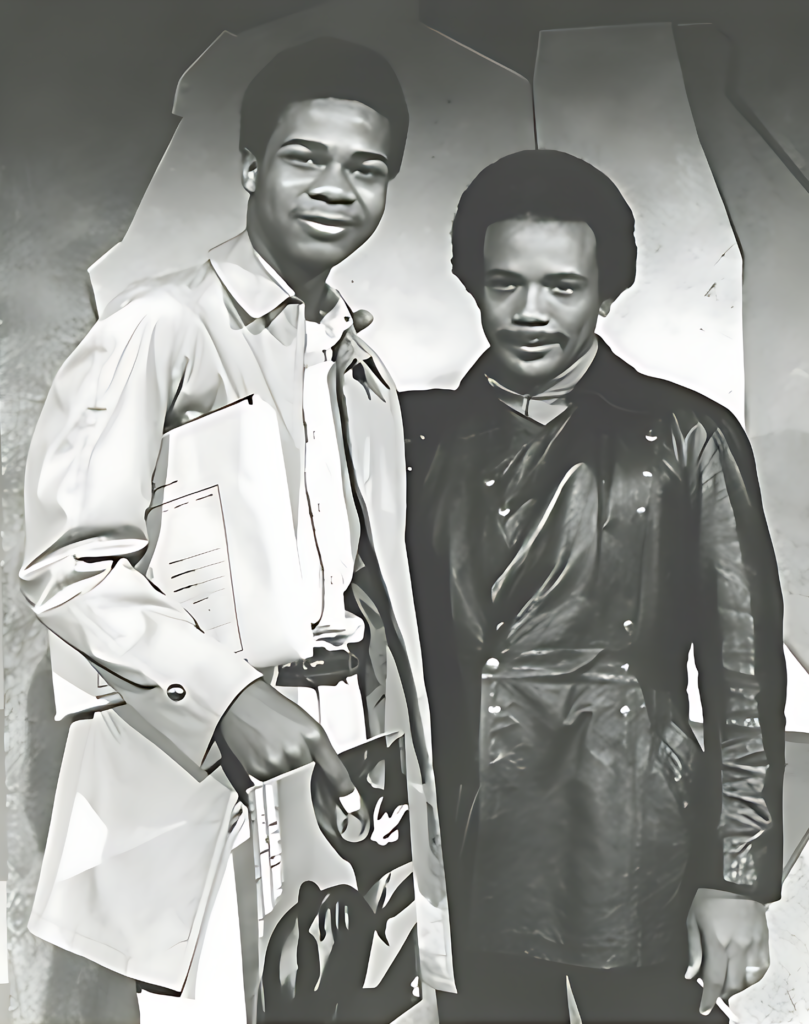Info about composer
The composer's journey

Primous Fountain, a self-taught composer raised in the Chicago South-side Housing Projects, has dedicated his life to music since leaving high school. His work has forever changed the perception of classical music, with his symphonies and other compositions sounding unlike any others. Fountain’s commitment to his unique style persists even in today’s challenging times, as he continues to fight for his music, often overlooked due to conventional prejudices.
Fountain’s exceptional talent was recognized early on. At just 15, he caught the attention of Earl Calloway, the esteemed arts editor of the Chicago Defender. During an interview with the renowned producer Quincy Jones, Calloway introduced the young Fountain, showcasing his orchestral manuscript “Manifestation.” Impressed by the young composer’s talent, Jones immediately became his patron and mentor, initiating a close relationship. Jones later commissioned Fountain to compose his Second Symphony, a monumental work ten years in the making, marking a new period in Fountain’s musical development.
As the young composer Primous Fountain had the premier of his ‘Manifestation’ by the Chicago Symphony Orchestra. Because of the huge public talk about the performance of Fountain’s music that concert had the most turn out in the history of the orchestra. One of the most remarkable and appealing aspect of this composer was the age: his “Manifestation” was composed when he was only 18.
At the tender age of 25, Fountain achieved the remarkable distinction of becoming the youngest ever recipient of the prestigious Guggenheim Award, an accolade he was honored with not just once, but twice. His illustrious career has indeed lived up to the lofty expectations set by his early patrons. Renowned orchestras such as the San Francisco, Chicago, Milwaukee, Buffalo, Minnesota, and Detroit Symphonies have performed his compositions, with his music resonating in the hallowed halls of Carnegie Hall and Lincoln Center in New York City.
A pivotal figure in Fountain’s career was Gunther Schuller, an influential force in classical music during his time. Schuller, who directed Tanglewood, played an instrumental role in Fountain’s success. He orchestrated the commission for Fountain to compose ‘Ritual Dances’ and maneuvered a last-minute rehearsal, known as a reading, of one of Fountain’s orchestral pieces to secure a crucial recording. This very recording was later played by pianist Herbie Hancock for the legendary Miles Davis, who, deeply moved, lauded Fountain’s brilliance and expressed a fervent desire to feature his work under the prestigious banner of Columbia Records. „I had a profound admiration for Miles Davis and was deeply honored by his recognition.“ Fountain remarked, adding a personal touch to this extraordinary anecdote.
Schuller’s support didn’t end there. He was instrumental in encouraging Fountain to apply for a Guggenheim Award, a concept entirely foreign to Fountain at the time. Reflecting on Schuller’s influence, Fountain recalls: “I want that at some time in history, Black people will have someone to look up to like you, to be proud of and remember in classical music.”
Fountain’s gratitude towards Schuller is profound, acknowledging him a pivotal mentor whose impact on his career and life is immeasurable.
Despite the challenges, Fountain remains steadfast in his artistic vision, continuously influencing and redefining the landscape of classical music. His unwavering dedication and innovative spirit ensure that his music will continue to resonate and inspire for generations to come.

Still full of dreams…
The ambitions of this giant are inexhaustible. It can be expected that in his ninth Symphony, he will once again remind us why he is considered an exceptional composer. He would also like to include works of a different nature than orchestral in his repertoire. This is exactly what he plans to demonstrate at his upcoming performances in Europe, which he is very much looking forward to.
In pursuing his independent direction, we can expect an unconverional combination of world-class artists and classical music. However, the composer’s heart still remains loyal to America, where he feels at home and open to further cooperation with famous conductors and large orchestras.

